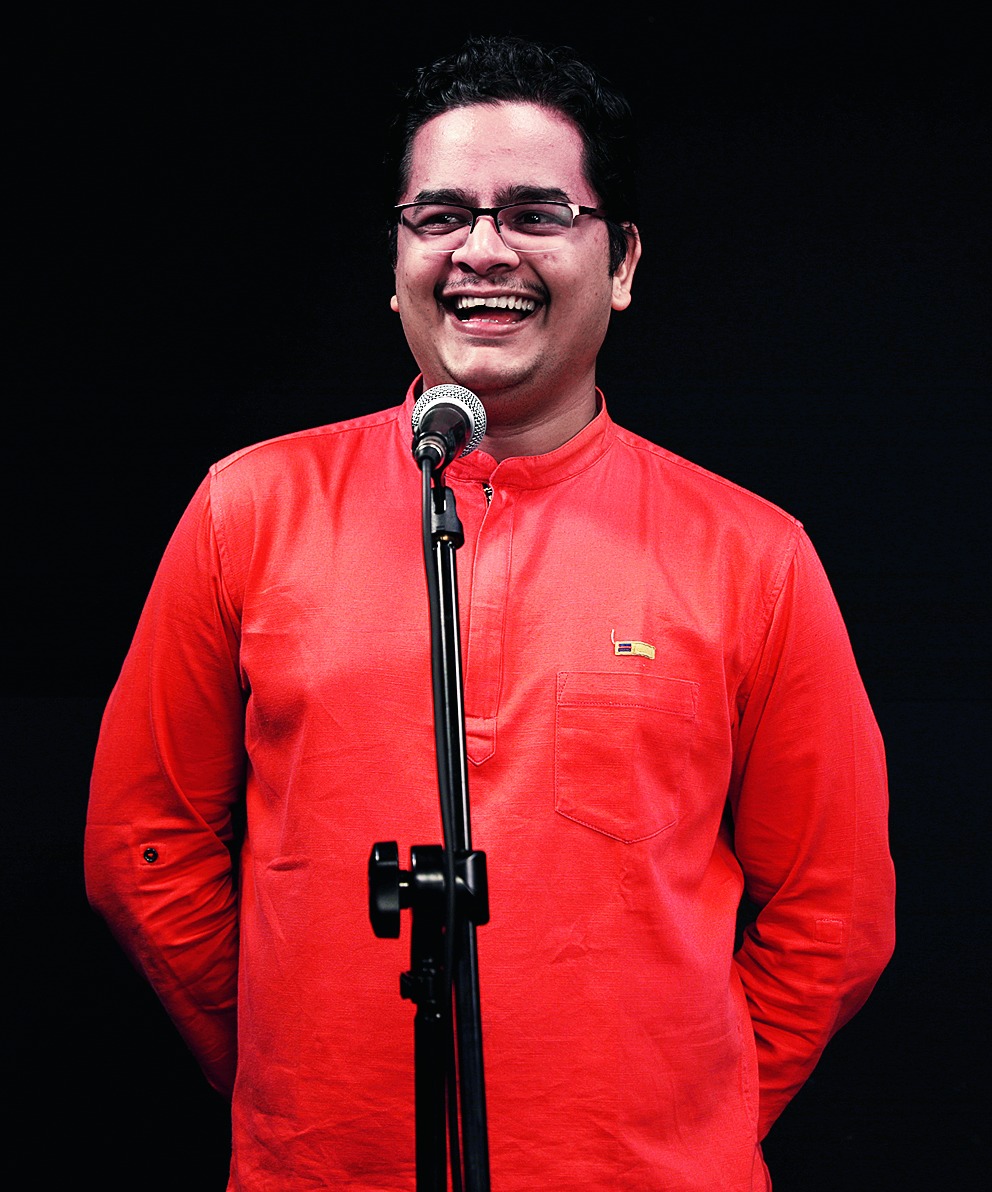

Simar Singh is all of 18 and based in Mumbai. He has just passed his school-leaving exams and is waiting to join college. Last year, he floated an online poetry platform called UnErase Poetry.
Between last March and now UnErase Poetry has hosted 25 performances or gigs.
These gigs, all by college students or young professionals, address social irritants - the taboo about dark skin, body shaming, patriarchy, sexism. They also discuss religion and politics. But what is it that they are attempting to unerase?
Simar is candid. He did not have anything deep in mind while naming this platform. The channel was meant to be purely functional. "Host topics that are not otherwise openly discussed in our society," he says.
One of the earliest videos uploaded on UnErase Poetry was Pyaare Baba by Mohammed Sadriwala. It is a letter from a girl child to god asking him why she is the target of so many atrocities - tezaab ke chhikattein, haivaniyat ki dastakhat... The letter writer is referring to acid attacks and the routine rapes.
The live performance was recorded at a café in Khar. The video shows a young man strumming away at a guitar, the lone accompaniment to Sadriwala's recitation. Occasionally, upon utterance of a certain phrase, a flutter of claps goes up.
Sadriwala, who is an advertising professional, met Simar at a weekly poetry slam. We learn from both that even two years ago individual poetry events were happening across Mumbai, but what was missing was a medium to reach a wider audience. Says Simar, "While stand-up comedians were getting popular on social media, poets remained unheard, unseen." Today, UnErase's YouTube channel has over four lakh subscribers.
Rakesh Tiwari works at a BPO, where he does 12-hour shifts. He looks like any regular office-goer - spectacles, rings on fingers, a thin moustache. But when he takes his place behind the microphone and begins his narration, a transformation comes about. Half smile playing on his lips, hands guiding a symphony of words, he asks his audience just like that - " Awaaz ka matlab jante ho?" He continues, "Awaaz tum mei tumhare hone ka wajood hai/ Awaaz khuda ki niyamat hai/ Awaaz woh khud hai." Words turn a corner and join a wider sentiment when he says: " Woh chahte hain tum apni inaayat ko bhulo/ Awaaz uthaane ki apni qawayat ko bhulo..."
These lines are from his poem Awaaz. His other compositions on UnErase are Missing, which is about those hundreds and thousands who go missing every day, and Korporate Kabootar, chronicles of the nine-to-five life of a person in service.
His narrations are garnished with Urdu but the flavour is of the humdrum things in life.
We ask him about his political views - after all, there are references to the Gujarat riots, 1993 Mumbai blasts, siyasati barf or political iceberg, but he denies straightaway. Instead, he invokes an unspecified "them", who are trying to suppress voices. He adds, "And that will not happen. You cannot tell us not to speak up. Baat toh hogi, bilkul hogi."
Gaurav Tripathi, another poet with UnErase, says, "Walking on the roads is not the only form of protest. Poetry and art are also mediums of protest." In one of his pieces, he imagines Ghalib and Premchand in jail. The metaphor is a nod to the prevailing fettered existence of the arts, of a ridiculously curtailed freedom of expression. It ends with the poet lamenting the death of art and creativity - Kala srijan woh dharam hai/ Jinse upje ved/ Kala srijan ki maut par/ Jug jug kare khed.
Tripathi likes to startle. He has titled another poem Lord Ram in Court. It highlights the original concept of Ram Rajya, as opposed to what is preached by Ram bhakts today. It has garnered over 1.5 million views to date. Then there is Tripathi's dedication to Lt Umar Fayaz, who was abducted and killed in May 2017 by Lashkar-e-Toiba militants. He has called it My friend from Kashmir: Kambal wale bhai.
Simar himself writes about gender disparity. His How to be a man shreds to pieces every established notion of masculinity and another poem, The legal rapist, talks about marital rape.
But who is UnErase's audience? Simar says that going by analytics, almost 60 per cent is below 28. The comments thread reveals effusive praise, though Sadriwala says that for every 100 praises there are 10 negative comments.
Sadriwala adds, "That does not stop me from writing whatever I want to." But he makes sure he does not go overboard with the criticism, "Where will I go if they do something to me? The followers on Facebook won't come to my rescue then," Sadriwala laughs. He adds, "Our freedom of expression is limited till it does not harm them."
Says Simar, "We are not spreading hate, not involving hate speech, not instigating any violence. It is just about questioning the current condition and situations. We are all doing spoken word poetry out of a moral responsibility."










